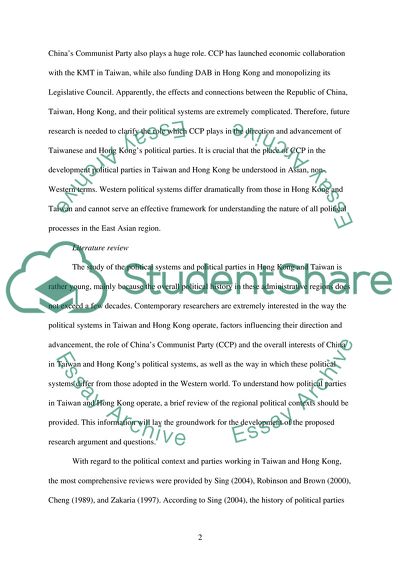Cite this document
(Future Political Party Improvements in Taiwan and Hong Kong Research Proposal, n.d.)
Future Political Party Improvements in Taiwan and Hong Kong Research Proposal. Retrieved from https://studentshare.org/politics/1597222-governing-greater-china-comparation-on-the-china-effect-on-the-party-system-in-taiwan-and-hong-kong
Future Political Party Improvements in Taiwan and Hong Kong Research Proposal. Retrieved from https://studentshare.org/politics/1597222-governing-greater-china-comparation-on-the-china-effect-on-the-party-system-in-taiwan-and-hong-kong
(Future Political Party Improvements in Taiwan and Hong Kong Research Proposal)
Future Political Party Improvements in Taiwan and Hong Kong Research Proposal. https://studentshare.org/politics/1597222-governing-greater-china-comparation-on-the-china-effect-on-the-party-system-in-taiwan-and-hong-kong.
Future Political Party Improvements in Taiwan and Hong Kong Research Proposal. https://studentshare.org/politics/1597222-governing-greater-china-comparation-on-the-china-effect-on-the-party-system-in-taiwan-and-hong-kong.
“Future Political Party Improvements in Taiwan and Hong Kong Research Proposal”, n.d. https://studentshare.org/politics/1597222-governing-greater-china-comparation-on-the-china-effect-on-the-party-system-in-taiwan-and-hong-kong.


